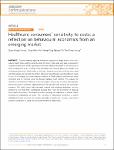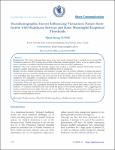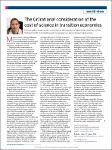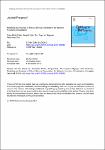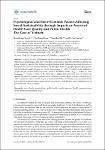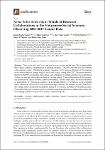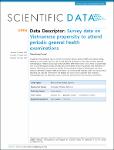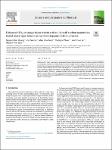Search
Author
- Manh-Toan Ho (5)
- Minh-Hoang Nguyen (5)
- Manh-Tung Ho (4)
- Huyen Thanh T. Nguyen (2)
- next >
Subject
- air pollution (1)
- Author- and journal-ba... (1)
- book reading (1)
- Business and management (1)
- next >
Date issued
Has File(s)
Search Results
This study adopts the bibliometric approach to identify the key characteristics in the relationship of demographic factors (age, gender, affiliations, and locations), scientific productivity, and the collaboration among development economics researchers in Vietnam during the period 2008–2020. Overall, the number of publications and authors in development economics are rising steeply with the average annual growth rate of nearly 23% and 26%, respectively. Moreover, the ‘quality’ of the research appears to be high as 59% of the articles are published in journals in the first and second quartile according Scimago journal ranking. However, the citation counts for these studies indicate their impacts are far more languishing in comparison. In terms of research trends, this study identifi... |
This short article represents the first attempt to define a new core cultural value that will enable engaging the business sector in humankind’s mission to heal nature. First, I start with defining the problem of the current business culture and the extant thinking on how to solve environmental problems, which I called “the eco-deficit culture.” Then, I present a solution to this problem by formulating the “semiconducting principle” of monetary and environmental values exchange, which I believe can generate “an eco-surplus business culture.” This work adds one new element, the eleventh cultural value, to the ten core values of progressive cultures postulated by Harrison (2000). |
Background: This short communication report some new results obtained from a medical survey among 900 Vietnamese patients in 2015, looking into possibly influential sociodemographic factors as far as patient satisfaction is concerned, to establish empirical relationships between them for policy implications.
Methods: The study employed the baseline category logit models to establish empirical relationships between predictor variables and responses, which reflect different levels of satisfaction.
Results: Income, medical expenditure, and insurance coverage have the positive influence on improving patient satisfaction. However, insurance reimbursement rate has the negative influence. Patients with residency status are more demanding than those without. The more seriously ill, th... |


